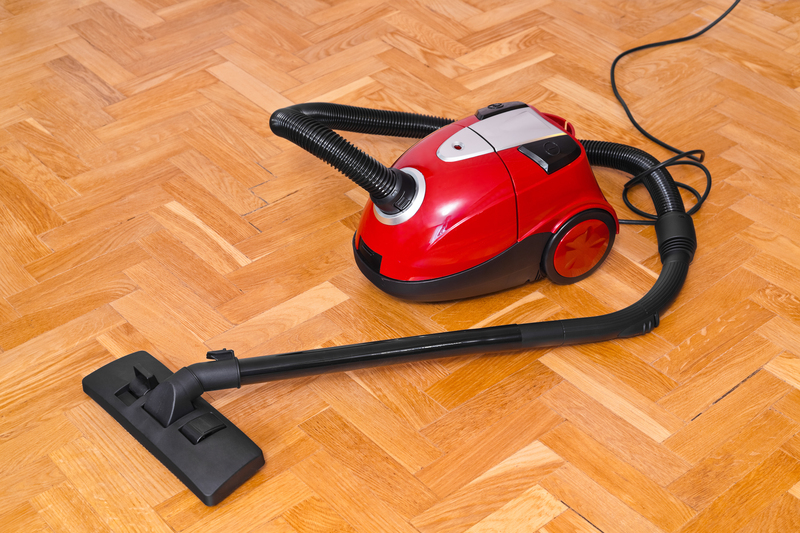How to Refresh Your Velvet Curtains With Safe Washing Techniques
Posted on 03/06/2025
How to Refresh Your Velvet Curtains With Safe Washing Techniques
Velvet curtains exude elegance, luxury, and timeless style in any home decor. However, maintaining their plush charm requires more than ordinary cleaning routines. If you're wondering how to refresh your velvet curtains with safe washing techniques, you've come to the right place. In this comprehensive guide, we'll walk you through effective, secure washing solutions--ensuring your beautiful drapes stay immaculate, hygienic, and sumptuously soft for years to come.
Why Velvet Curtains Need Special Care
Velvet is a unique fabric, cherished for its dense pile and striking appearance. However, its delicate fibers are prone to matting, water spots, and shrinkage if not handled thoughtfully. That's why understanding safe velvet curtain washing methods is crucial to maintain their luster and texture. Here's what makes velvet care different:
- Delicate pile: Velvet's raised threads can crush or tangle if agitated excessively.
- Moisture sensitivity: Too much water may leave marks or encourage mold growth.
- Color fading: Harsh chemicals and sunlight can diminish velvet's vibrant color.
- Shape retention: Incorrect care can cause curtains to stretch, shrink, or lose their beautiful drape.

Pre-Washing Velvet Curtains: What You Need to Know
1. Read the Manufacturer's Label
Always begin by examining the care instructions on your curtain's tag. Not all velvet is made equally! Standard manufacturing processes may result in:
- Cotton velvet -- can sometimes be hand-washed with care
- Silk or Rayon velvet -- usually requires professional dry cleaning
- Synthetic velvets -- may be more resilient but still need gentle handling
2. Test for Colorfastness
Before any water or cleaner touches your curtains, test a hidden section with a white cloth dampened with water. If any color transfers, consult a professional curtain cleaner to avoid staining or fading.
3. Remove Dust & Debris
Use a vacuum with a soft brush attachment or a lint roller to gently remove loose dirt, dust, pet hair, and small particles from the curtain surface. This not only prevents abrasion during washing but also rejuvenates the fabric's appearance instantly.
Safe Washing Techniques for Velvet Curtains
With velvet, the goal is to freshen and clean without damaging the fibers. Below, we explore the top recommended methods for refreshing your velvet drapes safely:
1. Spot Cleaning: Targeted Refreshment
For minor stains or isolated marks, spot cleaning is highly effective and non-invasive.
- Mix a few drops of mild liquid detergent with cold water.
- Dip a clean, soft cloth in the solution and gently dab (do not rub!) the stained area.
- Blot excess moisture with a dry towel; allow the treated area to air dry away from direct sunlight.
- Brush the nap gently with a soft-bristled brush to restore its texture.
Use this method regularly to keep velvet curtains fresh between deeper cleans.
2. Steam Cleaning: Gentle & Effective
Steaming is among the best ways to revive velvet fabric without risk. It not only removes wrinkles and odors but also refreshes the pile.
- Hang your curtains firmly.
- Fill the steamer with distilled water (prevents mineral stains).
- Hold the steamer nozzle a few inches from the curtain, moving in downward strokes.
- Let the fabric dry completely before touching or drawing the curtains.
Tip: Always start at the top and work down to avoid water drips.
3. Hand Washing Velvet Curtains: The DIY Approach
If your curtain's label permits hand washing, here is the safest procedure:
- Fill a clean bathtub or a large sink with cold water.
- Add a capful of mild, non-alkaline detergent designed for delicates.
- Fully submerge the curtain, swooshing it gently. Avoid wringing, twisting, or scrubbing.
- Soak for up to 15 minutes, then rinse thoroughly with fresh cold water.
- Lift the curtain out, supporting the fabric's weight to prevent stretching.
- Lay flat on a thick, clean towel; roll up the towel to absorb excess water.
- Let air dry flat or hang to dry away from direct heat and sunlight.
Important: Never use bleach or fabric softener, as these can destroy the velvet pile.
4. Professional Curtain Cleaning
For silk, antique, or heavily embellished velvet curtains, professional cleaning is highly recommended. Dry cleaners with experience in handling specialty fabrics can restore your drapes without risk of damage. Always inform the service about the fabric type and any stains.
Drying and Post-Wash Restoration
Proper drying is as essential as safe washing methods for refreshing velvet curtains.
Avoid Hang Drying When Wet
Never hang wet velvet as the weight can distort its shape. Instead:
- Allow the curtain to rest flat on a clean, dry towel.
- Change towels if they become saturated.
- Once damp (not dripping), gently hang the curtain to finish drying, ensuring even support across the fabric.
- Keep away from direct sun and heat sources to prevent fading and shrinkage.
Brushing and Steaming Post-Wash
After drying, restore the velvet's plushness by:
- Using a soft upholstery brush, lightly sweep in the direction of the nap.
- Giving a brief pass with a garment steamer to relax any remaining wrinkles.
Regular Maintenance Tips To Keep Velvet Curtains Fresh
Even with the best washing techniques, regular upkeep will dramatically extend the life and luster of your curtains. Here's how to keep your velvet looking spectacular every day:
- Weekly dusting: Lightly vacuum or shake out the curtains to remove debris.
- Avoid direct sunlight: Over time, sun will fade vibrant velvet shades.
- Rotate and reposition: Swapping curtain panels prevents uneven wear and color loss.
- Minimize touching: Hands transfer oil and dirt--open and close curtains using tie-backs.
- Control humidity: High moisture promotes mildew growth; use dehumidifiers if necessary.
Common Mistakes To Avoid When Washing Velvet Curtains
To prolong the life of your luxurious drapes, steer clear of these common velvet cleaning mistakes:
- Over-soaking: Excessive water can break down fibers and promote mildew.
- Scrubbing or wringing: This damages the pile and leaves the surface uneven.
- Using hot water: Only cold water should be used to avoid shrinking.
- Letting stains set: Address spills and marks as soon as possible for easier removal.
- Ironing directly: Never place an iron on velvet; opt for steaming if needed.
When Should You Replace or Restore Velvet Curtains?
While refreshing velvet with safe washing techniques can rejuvenate tired drapes, every fabric has its limits. Consider restoring or replacing your velvet curtains if you notice:
- Persistent odor or mildew after cleaning
- Significant color loss or fading
- Threadbare areas or heavy damage in the pile
- Irrevocable shrinkage or shape loss
In cases of minor wear, a professional restorer may be able to re-dye or repair the fabric, extending its life.

Frequently Asked Questions About Velvet Curtain Care
Can I Machine Wash Velvet Curtains?
It's usually not recommended to machine wash velvet curtains, as the agitation--even on a gentle cycle--can flatten or damage the pile. For synthetic velvets tagged as machine-washable, use cold water, a mesh laundry bag, and the gentlest cycle possible. When in doubt, err on the side of caution and hand-wash or dry clean.
Can You Tumble Dry Velvet Curtains?
No. Tumble drying is too harsh for velvet and may cause shrinkage or distortion. Air or flat drying is always preferable.
How Often Should I Wash Velvet Curtains?
Full washing should be done sparingly--every 12-24 months unless there's a serious stain or odor. Regular spot cleaning and steaming will keep your curtains looking and smelling fresh between washes.
How Do I Remove Water Marks From Velvet?
Water marks may be erased by lightly steaming the area and brushing the nap to restore uniformity. Avoid re-wetting the spot directly; always address water spills promptly.
Conclusion: Beautiful Curtains Through Thoughtful Care
Refreshing your velvet curtains with safe washing techniques preserves their elegance and enhances your home's ambiance. By following these guidelines on spot cleaning, gentle hand washing, steaming, and ongoing maintenance, you'll protect your investment while enjoying plush, vibrant drapes year after year. Remember: when in doubt, consult a professional, and treat velvet as the luxury it is.
For more expert tips on fabric care, bookmark this guide to how to refresh your velvet curtains with safe washing techniques and keep your living space looking its absolute best!
Latest Posts
How to Refresh Your Velvet Curtains With Safe Washing Techniques
Nestled between Bustling City and Bucolic Country - Welcome to Clapham








